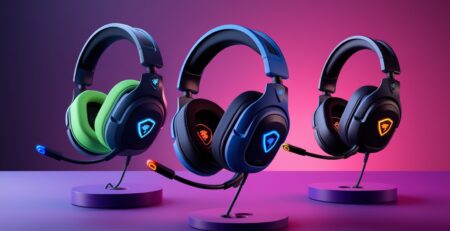The Legal Aspects of Esports: Agreements, Rights, and Sponsorships
Overview of Legal Aspects of Esports:
Electronic sports, or esports, have developed into a vast international sector that provides athletes and organizations with enormous financial prospects. As this industry grows, understanding the legal ramifications becomes essential for all parties. This article examines esports’ legal environment, particularly emphasizing contracts, sponsorships, and rights. It also offers insights into the implications of these factors for players, teams, and sponsors.
Esports’ Ascent and Its Legal Consequences
A Snip Shot of Esports
Competitive video gaming is referred to as esports, in which teams or individuals compete at amateur or professional levels in various games. From casual gaming, the business has developed into a professional arena with leagues, tournaments, and significant financial stakes.
The Role of Legal Frameworks
As esports expand, legal frameworks to control player contracts, sponsorship agreements, and intellectual property rights are becoming increasingly necessary. In the absence of appropriate legal counsel, participants risk disagreements, monetary loss, or legal issues.
Esports contracts
Different Esports Contract Types
Player Agreements
Esports players and teams or organizations enter into agreements known as player contracts. These agreements specify the conditions of employment, such as pay scale, expected performance, and length of service. They also frequently address non-compete agreements, which forbid players from signing with opposing teams during and after their contract time.
Group Agreements
Team contracts are agreements between an esports organization and other parties, such as sponsors or event organizers. These agreements specify the parameters of the partnership, the financial terms, and the assigned duties.
Contracts for Tournaments
Tournament contracts govern the terms between participants and event organizers. The organizers usually involve paying participation fees, distributing prizes, and adhering to tournament regulations.
Important Legal Points to Remember
Workplace Law
Because esports competitors are frequently viewed as workers on their teams, employment law is relevant. This covers matters such as rights, pay, and working hours.
Contractual Liabilities
Clubs and players must follow the conditions specified in their contracts. Contract violations may result in court cases, penalties, or agreement termination.
Dispute Settlement
Parties frequently utilize legal procedures like arbitration or mediation to settle disagreements. Contracts must contain provisions outlining the resolution of disputes.
Esports Sponsorships: An Overview of Sponsorship Agreements
Different Kinds of Sponsorships
Sponsorships can take many different forms in esports, including monetary contributions, product endorsements, and event sponsorships. Companies can interact with the gaming community and promote their brands by sponsoring teams, players, or tournaments.
Sponsorship Contracts
Sponsorship agreements outline the conditions under which a business supports an esports organization. These contracts frequently cover promotional efforts, branding rights, and monetary compensation.
The Law Regarding Sponsorships
Rights to Intellectual Property
Trademarks, logos, and other intellectual property are commonly used in sponsorship agreements. It’s critical that the agreement specify how these rights are used and safeguarded.
Respect for Regulations
Sponsorship agreements must comply with all applicable marketing and advertising laws. This includes ensuring that advertisements are explicit and don’t deceive customers.
Terms of Contract
Sponsorship agreements must specify the length of the relationship, as well as the deliverables and performance indicators. Clear language can avoid uncertainty and arguments.
Types of Intellectual Property and Their Rights in Esports
Copyright
Copyright protects video games’ artistic elements, including the soundtrack, graphics, and plots. These rights belong to publishers and developers and impact how games are used in competitions and live streaming.
Brands
Brand names, logos, and other distinguishing marks associated with esports organizations are protected by trademarks. Teams and sponsors must ensure that they don’t violate any already-registered trademarks.
Patents
Patents may cover novel game mechanics or esports technology. Although less prevalent, patents can be useful in safeguarding technological innovations.
Handling Intellectual Property
License Contracts
A licensing agreement allows one party to use another’s intellectual property. These contracts are typical in esports, particularly for game developers and event planners.
Enforcing Rights
To protect intellectual property rights, one must look for infringement and, if necessary, take legal action. It could entail filing a lawsuit or delivering cease-and-desist letters.
Safeguarding Novelties
Organizations and developers involved in esports should take precautions to safeguard their inventions by obtaining patents, trademarks, and copyrights. It entails ensuring and registering their intellectual property from unauthorized usage.
In summary
Esports law includes several components, including contracts, sponsorships, and intellectual property rights. Comprehending these facets is crucial for athletes, teams, and sponsors as the industry grows. Thanks to appropriate legal frameworks and agreements, all parties involved may negotiate the complexities of esports and take advantage of its many prospects.
As a player, team manager, or prospective sponsor, you can safeguard your interests in this exciting and dynamic industry by being aware of the legal ramifications of esports and using that knowledge to inform your strategic decisions.











Leave a Reply